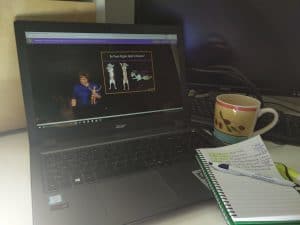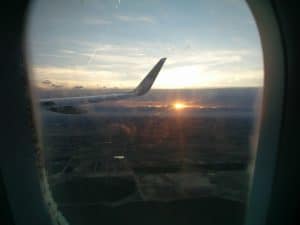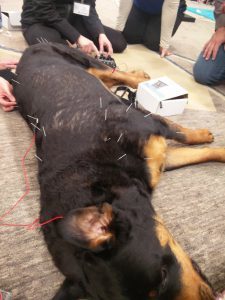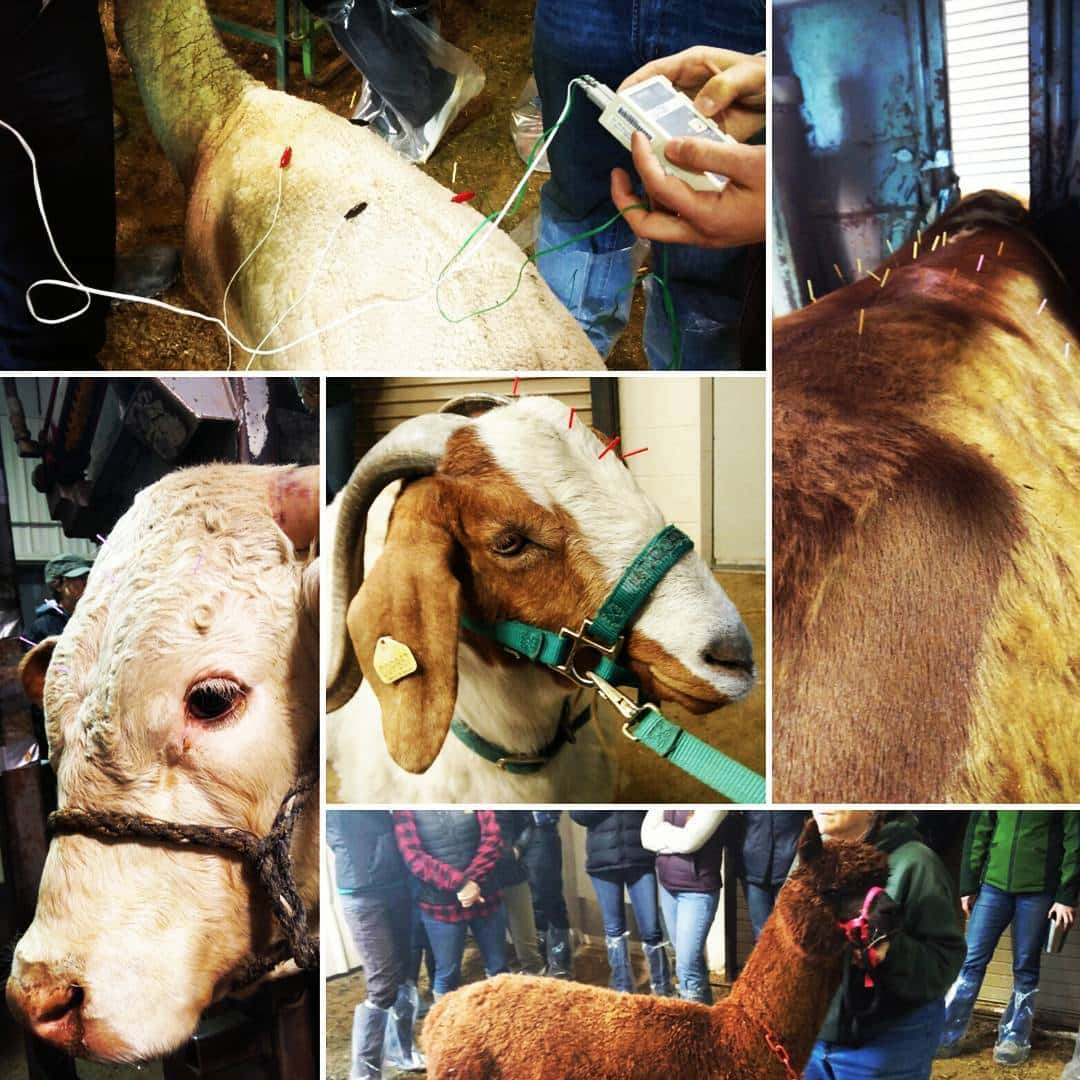When I decided to get my certification in veterinary acupuncture, I didn’t really know what to expect. I had seen acupuncture work wonders on horses with sore backs, but wasn’t sure about how effective it would be in other applications. There are several certification programs throughout the country and I was having a difficult time deciding which one I wanted to pursue. Fortunately, I had a friend from veterinary school who was looking to get certified in acupuncture at the same time I was. He did his research and settled on the CuraCore Integrative Medicine and Education Center in Fort Collins, Colorado. He invited me to join him in enrolling for their course.

Science-based Acupuncture
I went to the CuraCore website and read about their program. Their catchphrase is “Together we can change medicine.” They had my attention. Reading further I saw the phrase “We educate based solely on science.” Alright, I was sold. I’d seen acupuncture work but I didn’t understand how or why, and I had reservations about whether all the claims I’d heard about acupuncture were scientifically sound. Seeing a commitment to science prominently advertised on their website was very reassuring.
Throughout my entire life I have placed a lot of stock in science and the scientific method. I majored in Biology and minored in Chemistry in college. In veterinary school we were taught about techniques and medications that have been tried and tested in rigorous studies, their mechanisms of action scrutinized in detail. I had a difficult time swallowing certain ideas associated with acupuncture like there being a “life force” flowing through meridians and that disease processes are simply an imbalance in this energy. But CuraCore sets itself apart from other veterinary acupuncture programs with its focus on evidence-based and rational medicine.
Having put these concerns to rest, I signed up for the program and started planning my trip. The program consists of twelve online modules with video lectures and quizzes, followed by a six day clinical intensive in Fort Collins, Colorado with two point finding examinations. I was in the middle of maternity leave so I thought it would be a breeze to get through the online portion during my time off. I didn’t take into account a newborn and a two year old constantly demanding my attention. Throw in a couple of unplanned hospital stays with the two kids as well and it was a bit of a struggle to complete all the modules. But I got it done in the nick of time and boarded my flight to Colorado.

Getting Hands-on Experience
On the first day, we went around the room of around 100 students and introduced ourselves. I was amazed by how many other people were there taking the course. This is definitely a field that is growing in veterinary medicine as we are all looking for new ways to help our patients. I was also struck by the diversity of the group. There were fourth year veterinary students and people who had been practicing for 20 years. There were equine veterinarians from Texas and small animal emergency clinicians from Boston. It was great to all be there together working, learning, and supporting each other.
Because we had gotten all of our lectures through the online portion of the course, the clinical intensive was all about hands on work. There were about twenty “DOCs” (Doctor Observer Coaches) who had all passed the course in the past and were there to help guide us and answer questions. These DOCs were also from a variety of backgrounds and all used acupuncture in their daily veterinary practice.
The first half of the course was spent learning how to apply acupuncture to large animals. We were all transported to a local therapeutic riding school and the first three days of the clinic were spent locating acupuncture points, placing acupuncture needles, and practicing our palpation skills on their horses. On the fourth day we were able to go to Colorado State University’s agricultural research center and practice our skills on sheep, goats, cows, and alpacas. The second half of the course was spent learning more about the application of acupuncture in small animal medicine. We had several sessions where actual clients brought in their dogs for us to work with.

Helping Animals and their Owners
I was taken aback by just how much acupuncture helped our large animal patients. An unfortunate consequence to a therapeutic riding program is many of the horses get muscle sore throughout their back. It was amazing to see these horses relax and to feel their trigger points and tense muscles melt underneath our hands and needles.
In the small animal portion of the clinic, though, what I noticed most is just how much acupuncture helps our clients. We had one session in my group where a client brought in her dog who had been getting acupuncture for months after a traumatic spinal disk injury left her paralyzed in all four limbs. Through dedication, medicine, acupuncture, and rehabilitation her dog was almost back to normal, and without any surgical intervention at that. You could tell by the way she talked about her experiences that she was so thankful to have acupuncture as a tool to help her dog recover and keep him in good condition.
Veterinarians like me often feel that animals see us as the bad guys. We work hard to help them get and stay healthy but they don’t always realize that or appreciate it. For an animal, a visit with the vet often involves being held down, poked with needles, given bad tasting medicine, and put through uncomfortable procedures. With acupuncture we are able to be your pets’ friends. It is a voluntary experience. We never force them into getting acupuncture. Animals often learn to love their sessions and look forward to them.
I am so excited to have my certification and to start building relationships with patients who can benefit from me and my new skill. After all, that’s what being a veterinarian is all about.

